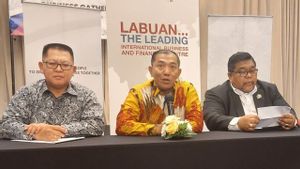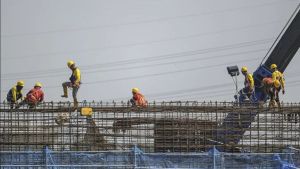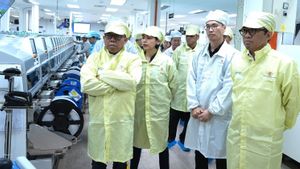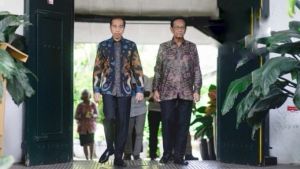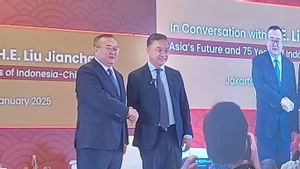JAKARTA - Dozens of garment companies in West Java went out of business, causing a wave of layoffs (PHK). The decline in demand for textile products (garments) at home and abroad is the trigger. Therefore, the government is advised to expand the garment export market and strengthen the safety net.
Executive Director of the Institute for Development Economics and Finance (Indef) Tauhid Ahmad said the garment industry was under heavy pressure due to sluggish export market demand from Indonesia's trading partner countries.
"The export market experienced a decline in the market because our trading partner countries, which usually export to America, Europe, and several regions, began to feel the decline in economic growth in the sixth quarter until next year," said Tauhid, in Jakarta, Wednesday, November 2.
The sluggish demand, said Tauhid, forced the garment industry to reduce capacity and reduce production capacity. "So the company or industry will automatically lower their production utility. Yesterday it was 50-60 percent, yes, now it might be below that," he said.
In addition, Tauhid also highlighted another factor that has a major influence on the country's garment industry, namely the entry of used products. Likewise with the ease of importation which makes imported goods increasingly flood the domestic market.
"Many imported products. For the domestic market, used products are starting to come in again, even though they should be prohibited. Cheap goods, now importing is easier. We don't know what goods are from outside. It finally hit the domestic market," he said.
Therefore, Tauhid suggested the government expand new markets to countries whose economies are still growing.
"I think we still have to find a new market whose economy is still better. For example, ASEAN countries, India, or other countries that are still growing," he said.
SEE ALSO:
Tauhid also asked the government to be firm in implementing import regulations. Where used garment products that are not allowed to enter Indonesia must be destroyed.
"For those with high imports, enforcement. It is no longer allowed if the source goods are imported, then the secondhand goods market should be destroyed. If this is allowed, it will grow. It kills our industry. So we need law enforcement," he concluded.
Thickened Safety Net
Meanwhile, CELIOS Executive Director Bhima Yudhistira hopes that the wave of layoffs that have occurred in Indonesia can be overcome by the government through various policies. Starting from providing incentives to strengthening the safety net.
But no less important, said Bhima, is to ensure that employees who are laid off get their rights in the form of severance pay and BPJS Employment.
"Even if there are layoffs, the government hopes to encourage the fulfillment of workers' rights, the BPJS process is accelerated, severance rights are given. That's what worries workers in number two, right," he said.
Bhima also said that the government had 'extra funds' from the surplus in the state budget and government spending of IDR 1,200 trillion which had not been fully absorbed, to be used to strengthen the safety net.
"It should be used to thicken the safety net, so that wage subsidy assistance can be more evenly distributed. Then the amount can be increased, it can help ease so that companies cannot do layoffs unilaterally," explained Bhima.
Currently, said Bhima, a wave of layoffs occurred in the textile industry. Bhima is worried that it will spread to other sectors such as plantations.
"The unique sector that is threatened with layoffs is not only the manufacturing sector but also the plantation sector, especially when CPO prices experience a sharp decline, it is also at risk because the commodity declines, layoffs can also occur in the plantation sector," said Bhima.
In addition, said Bhima, the digital sector, which during the pandemic period absorbed a lot of workers, was experiencing a slowdown and was even threatened with wider layoffs.
Furthermore, Bhima suggested that layoffs should not be widespread, the government needs to roll out a number of policies and incentives that can be enjoyed by industry and small and medium enterprises.
"What the government needs to think about is how to have a comprehensive policy package on saving industry, which is labor intensive. Tax relaxation, lower tariffs. There is a discount on electricity rates, and it is related to the push for the expansion of KUR to the small and productive industrial sector. There is a decrease in KUR interest. It was a wage subsidy," said Bhima.
The English, Chinese, Japanese, Arabic, and French versions are automatically generated by the AI. So there may still be inaccuracies in translating, please always see Indonesian as our main language. (system supported by DigitalSiber.id)





